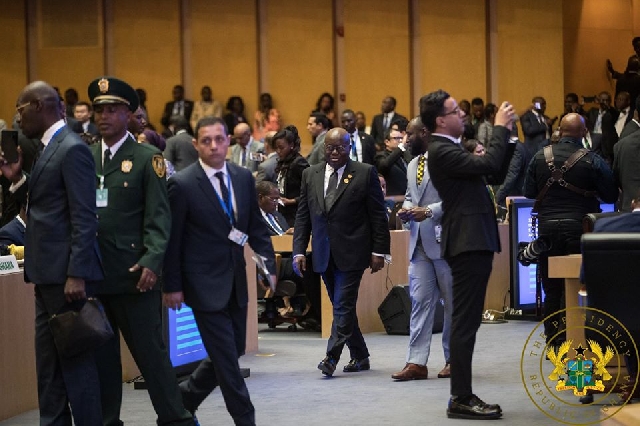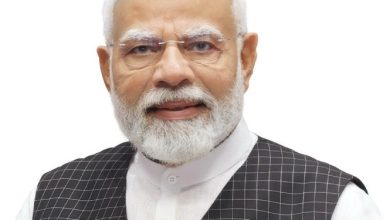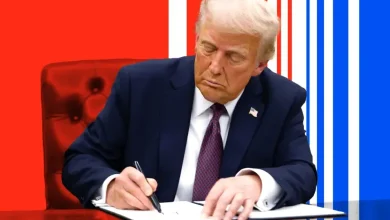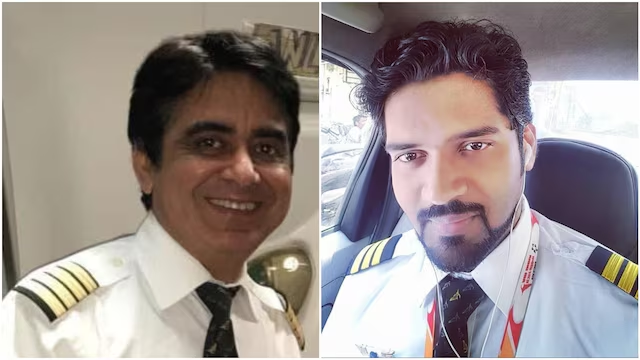Akufo-Addo, 11 other African leaders agree to be co-champions for Arts, Culture and Heritage

On the sidelines of the 33rd Assembly of the African Union held in Addis Ababa, twelve Heads of State solemnly accepted the invitation of His Excellency Ibrahim Boubacar Keïta, President of Mali, African Union leader for Arts, Culture and Heritage to act as co-champions.
Upon his designation as African Union Leader for Arts, Culture and Heritage, President Keïta, found it appropriate to establish a presidential level structure to carry out his mission. Thus, he invited 12 Heads of State to join him in a Council of the Peers.
The 12 Heads of State, from the five regions of the continent, are:
President of Cape Verde, Jorge Carlos Fonseca.
President of Ghana, Nana Akufo-Addo.
President of Nigeria, Muhammadu Buhari.
President of Equatorial Guinea, Teodoro Obiang Nguema Mbasogo.
President of Congo, Denis Sassou Nguesso.
President of the Democratic Republic of Congo, Felix Tshisekedi.
Kingdom of Morocco, His Majesty Mohamed VI.
President of Egypt, Abdel Fattah al-Sissi.
President of Kenya, Uhuru Kenyatta.
President of the Federal Republic of Ethiopia, Mrs Sahle-Work Zewde .
President of South Africa, Cyril Ramaphosa.
President of Namibia, Hage Geingob.
The mandate of the Council is to formulate strategic orientations and to ensure that these orientations are taken into account in the activities of the African Union (AU). The members of this Council are also expected to play the role of leadership, advocacy and facilitation at the sub-regional level.
At the inaugural meeting of the Council, the twelve Heads of State committed themselves to give a pride of place to culture, arts and heritage.
In that framework, they adopted a draft resolution that will tabled with a view to declaring 2021 as the year of culture:
In addition, the twelve co-leaders commit themselves to:
Ø advocate for the ratification of the Charter for the African Cultural Renaissance;
Ø gather political and financial commitment of the member States for the African World Heritage Fund;
Ø promote culture as a tool for peace building;
Ø develop creative industries generating economic development and outreach;
Ø preserve and develop African languages as a vehicle of communication, knowledge and culture; and
Ø speed up the return of cultural assets.
On all these subjects, the countries will work together with the relevant organs of the African Union and according to a principle of subsidiarity.
Source: Class




